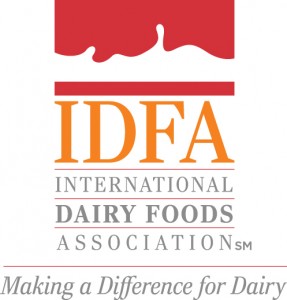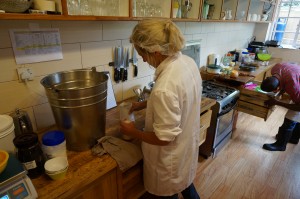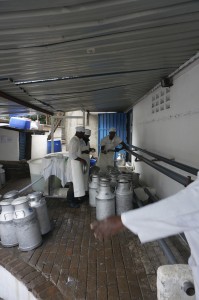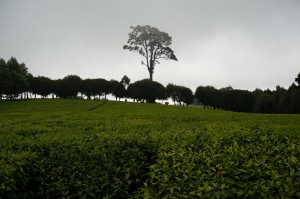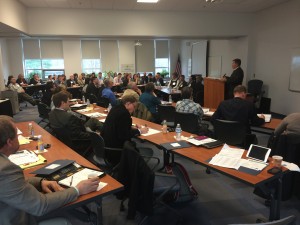ITHACA, NY — From printed phyllo pastries to petite peppers packing powerful nutritional punches, innovation and interdisciplinary collaboration will be key ingredients forming the future of food.
Academic experts and industry insiders will gather at Cornell University on December 8, 2014, for a global summit to discuss new approaches to emerging food system challenges.
They will serve up fresh findings and engaging exchanges on a range of topics, from the business of food, to its nutrition, safety, and consumption around the world. Also on the menu: hands-on technology demonstrations, resource exhibits, networking opportunities, and presentations from the next generation of food scientists and researchers.
The program is designed to appeal to people from fields across the food sector, from farmers to foodies, researchers to retailers, entrepreneurs to engineers, producers to policymakers.
- Those interested in innovation will learn about the future of 3D printing and other gadgets in Cornell’s Creative Machine Lab from director Hod Lipson. PepsiCo’s senior vice president of long-term research, Greg Yep, will also be on hand to discuss developments in his industry.
- Diet and disease will be the focus of a panel about nutrition, with presentations from food scientist Rui Hai Liu, Beech-Nut CEO Jeff Boutelle, and breeders tackling the “hidden hunger” of micronutrient deficiency by creating fruits and vegetables with extra vitamins and minerals.
- Communications experts and celebrated Edible Geography blogger Nicola Twilley will discuss the public’s appetite for food news.
- Foodborne pathogen expert Martin Wiedmann will join Elizabeth Bihn, director of the Produce Safety Alliance and coordinator of the National Good Agricultural Practices (GAPS) program, to discuss advances in food safety, including the use of big data to develop new strategies.
- Budding businessmen and established entrepreneurs alike will benefit from a business session with Wegmans vice president Bill Strassburg and David Hochman, founding executive director of the Business Incubator Association of New York State.
- Economist Prabhu Pingali, director of the Tata-Cornell Agriculture and Nutrition Initiative, will be among a group of international researchers who will go global to discuss strategies to feed the world’s growing population.
Famed food psychologist Brian Wansink, director of the Food and Brand Lab at Cornell’s Dyson School of Applied Economics and Management, will demonstrate some of his “Slim by Design” strategies during an interactive dinner presentation.
According to event organizer Julie Stafford, of the Cornell Institute for Food Systems Industry Partnership Program, a special emphasis will be placed on the power of integrative approaches and the role that public-private partnerships can play in driving innovation and shaping sustainable solutions. Kim Wagner, senior partner and managing director of The Boston Consulting Group, will lead a discussion about the topic as a final session.
“Together, we can integrate what we have learned in the lab with what our industry partners have achieved in the field, to address issues that might not be resolved by either stakeholder alone,” Stafford said.
For more information and registration, visit http://bit.ly/CIFSSUMMIT.
Contact:
Melissa Osgood, Cornell Media Relations, mmo59@cornell.edu, 607-255-2059
Julie Stafford, CIFS-IPP, jls653@cornell.edu, 607-255-0860
The Cornell Institute for Food Systems (CIFS) is a network of over 60 faculty fellows from more than a dozen disciplines who share a passion for food and a commitment to enhance local and global food systems through scientific discovery, advanced technologies, and social strategies. Its Industry Partnership Program (CIFS-IPP) enhances engagement of Cornell University faculty, staff and students with industry scientists, engineers and business leaders. Participants are offered customized opportunities to engage in collaborative research, technical training and technology transfer through a diverse number of venues, including Cornell’s New York State Food Venture Center at the Agricultural Experiment Station in Geneva, which offers guidance to entrepreneurs in food processing, food safety and regulatory compliance. They can also tap into a pipeline of talent, through interactions with undergraduate and graduate students who are training to become the next generation of food leaders. https://ipp.cifs.cornell.edu


